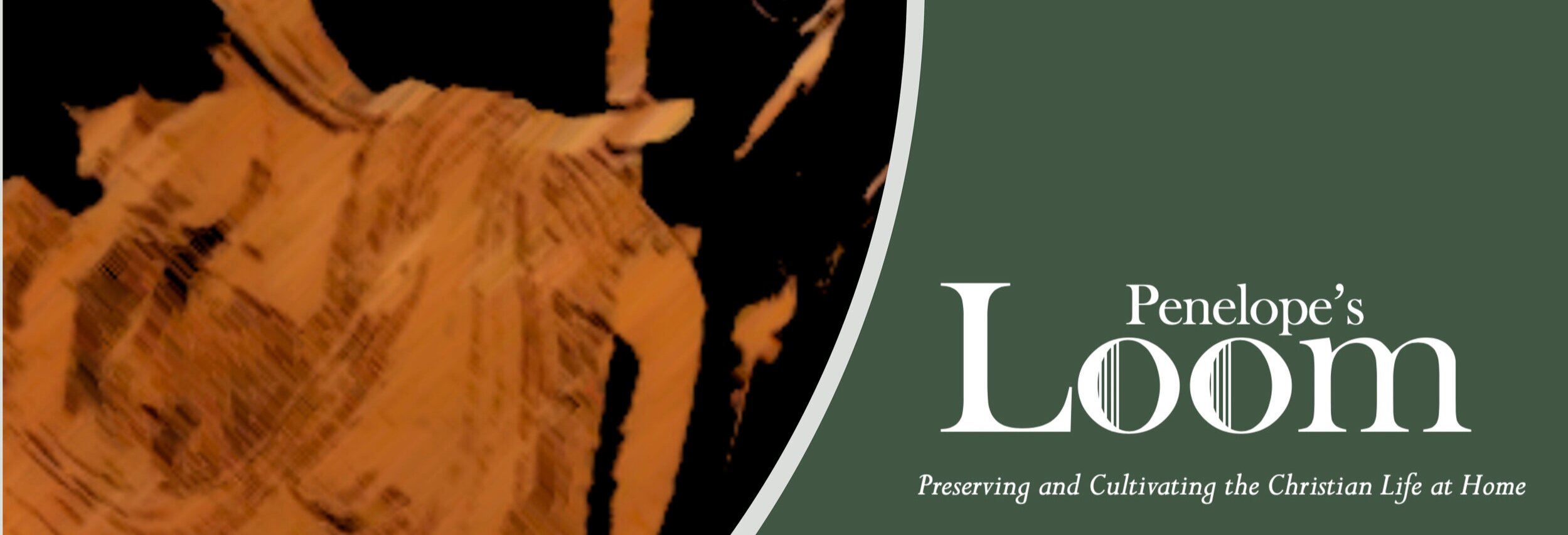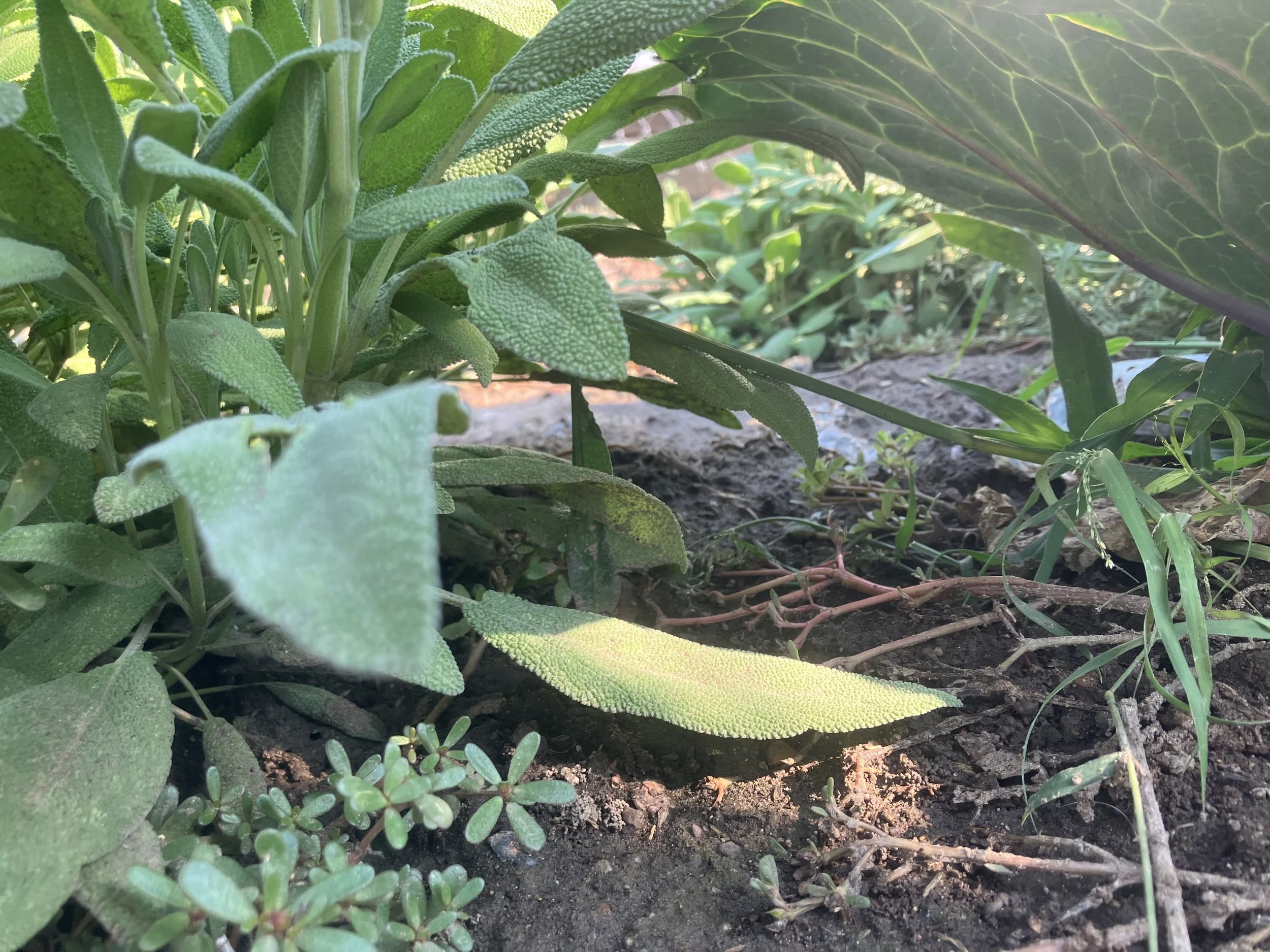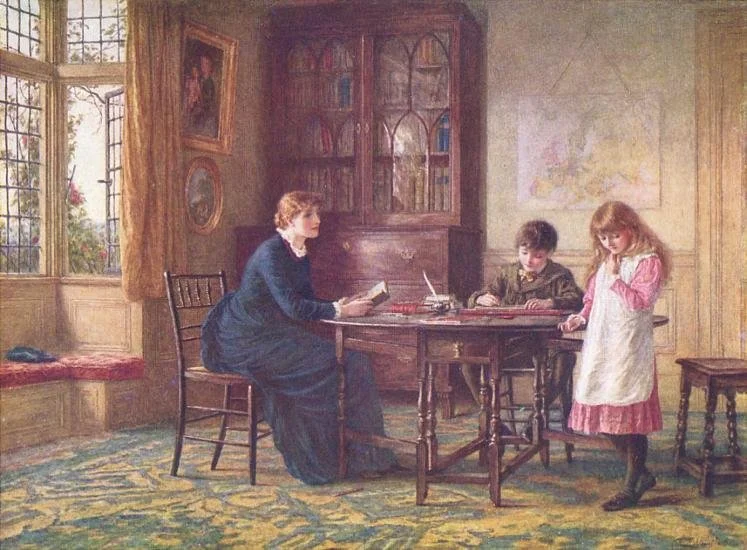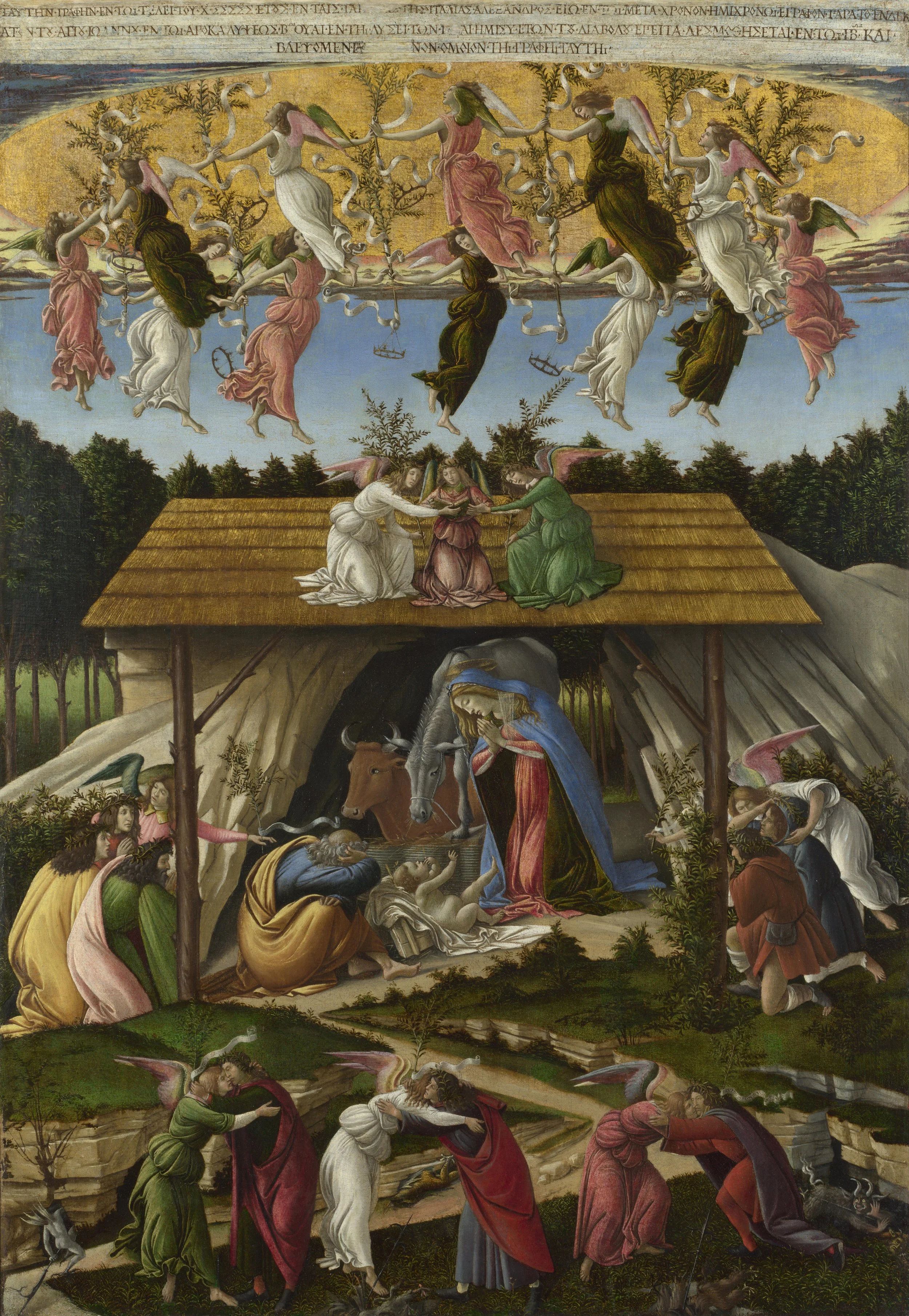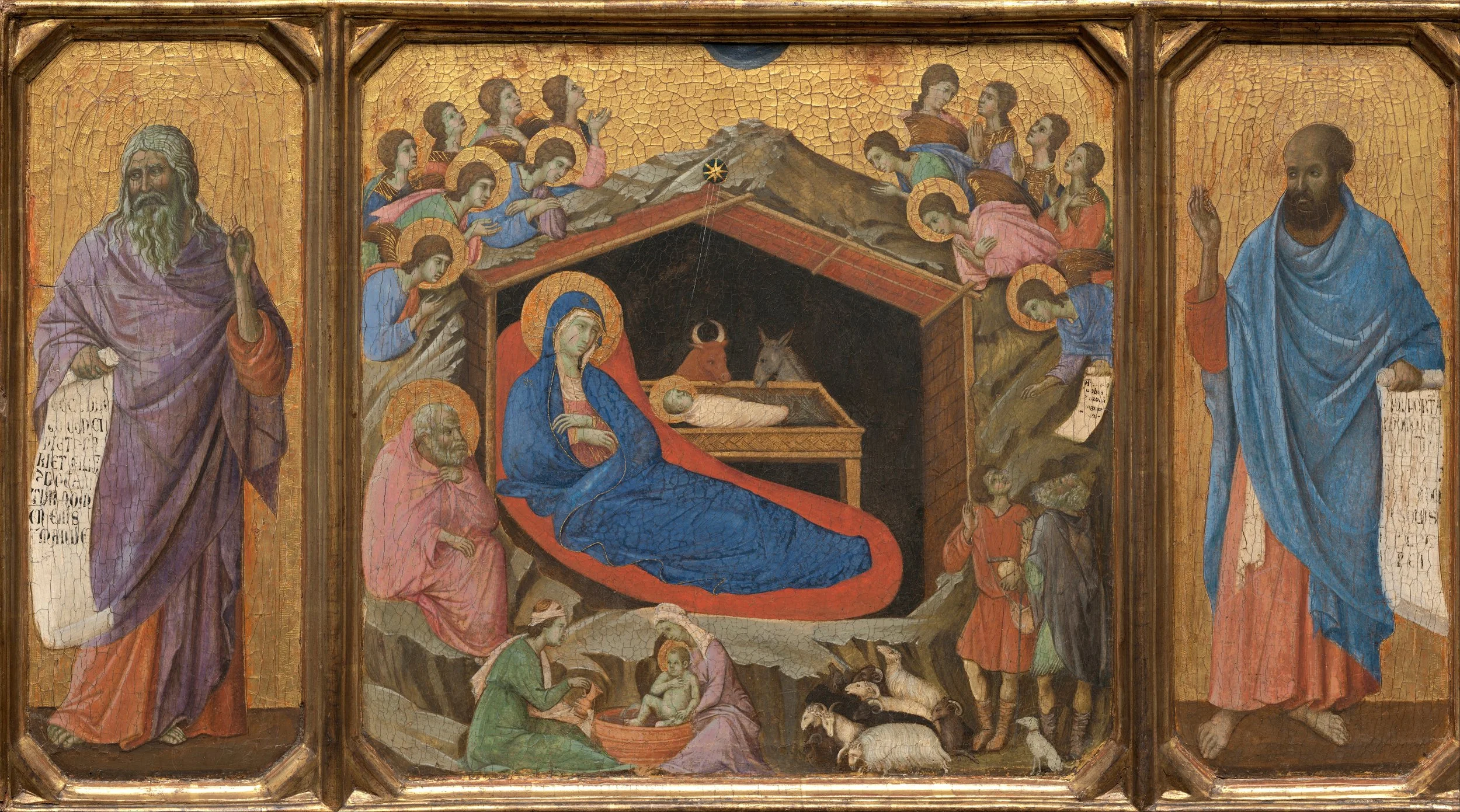But What IS Classical Education and Where Do I Begin?
I have wondered and pondered and wondered some more at how best to introduce people to what has become known as “classical education.” And as I have tried to become as familiar as possible with the “big names” of the classical education world (publishers, institutions, websites, etc.), I have realized that there are just too many definitions, philosophies, and angles that people use when approaching this thing called “classical education.” And I have also become severely disillusioned with almost every single one of those institutions, consortiums, or groups. I want to be able to say, “Go to this website and read what they say and then you’ll have an idea of what classical eduction is.” But that simply doesn’t exist. I begin with this long disclaimer because I do have recommendations for how to enter this world and begin to learn about and pursue a better education for both yourself and your children. But, like anything worth doing, it takes a great deal of time and effort and it also requires a few good guides.
First, the term “classical education” is a recent one. No one in the ancient or medieval world referred to a type of education as “classical”. What is considered “classical” education today often applies to a wide variety of educational philosophies, though the movement began mostly in the 1990s with Douglas Wilson’s book Rediscovering the Lost Tools of Learning - a book that I don’t really recommend because he took an excellent essay by Dorothy Sayers and used her ideas to develop the “ages and stages” approach to educating. This approach is not “classical” in any way. It became a convenient way of organizing children into groups and provided a framework for creating a great deal of new curricula that made the creators a lot of money. But the method itself did not “rediscover” anything nor did it truly resemble education of the ancient world or the medieval.
There has been a great deal of development since the early ‘90s with the world of “classical education.” Most broadly, it almost always stands in opposition to “public” education or mainstream education. Some only use the term to refer to a certain type of curriculum used in a school. Others recognize that “classical” education must encompass not only the curriculum used but also the entire culture of the school. Still others, like Tracy Lee Simmons in his book Climbing Parnassus, will point out that a “classical” education ought to refer to an education in the languages of the classical world and the great works read in those languages. Then there are those that have abandoned the term altogether and have begun to define their educational philosophy much more carefully. These include those who subscribe specifically to Charlotte Mason’s philosophy. There has been a great deal of debate over whether a Charlotte Mason education is “classical” or not. Listen to this wonderful podcast episode to learn why the answer to that question is a resounding, “Yes! It is.” Charlotte Mason’s philosophy continued the tradition of true education.
There are those who follow the Montessori Method, developed by Maria Montessori, and claim that this is connected to “classical” education. Interestingly, many in the “classical” education world would adamantly argue that the Montessori Method is radically opposed to “classical” education.
And then there are the big names of growing institutions like the Circe Institute and the Classic Learning Test and the Hillsdale Charter Schools. But the reality is that there is also much difference of opinion within this world. And, as always happens with any “new” idealogical or philosophical movement, now that it has existed for a couple of decades, critique is beginning to emerge from within the classical education movement itself. While this may cause confusion initially, this critique is needed and ultimately is a very good thing.
But this reality is frustrating: first you’re just trying to determine what “classical” education is and then you learn that not only do you have to know what it is, you have to be able to discern between what is good “classical” education and what is bad “classical” education. The majority of us would say we did not receive a “classical” education of any kind, so suddenly having to know so much about it can be incredibly daunting. But ultimately, this critique is a good thing. We that claim to live in the “classical education” world have to recognize that we may be getting a few things wrong and we need to be very careful how we go forward.
In response to all of these moving parts and differing philosophies, may I suggest a change in perspective? If we cease to look at education as a hole which needs to be plugged by this or that type of school or curriculum, we might begin to view education in its proper context and we might begin to approach the difficult question of what education is for. If we think of education as that vehicle for preserving and passing down what previous generations have learned and stored up, we might begin to see a different picture. In the first place, it is obvious that none of us can quickly acquire a knowledge of the vast content of Western Civilization. However, by learning only a very little, we can quickly grasp how very much we do not know. Once that realization occurs, we can begin to ask better questions and seek better guides. Our goal ought to be, simply, to recover as much as we can of what has been lost to us or stolen from us and hope that each generation after us does the same. Beyond that, we can begin to recover our own educations and we can begin to assist our children and students in their great task of ever becoming fuller human beings.
Here are a few places to start. There are more that exist, but these podcasts, websites, and books will give you a place to begin. The goal is to learn enough to begin to ask good questions. Our own education will grow from there.
Books to Become Familiar With:
The Abolition of Man by C.S. Lewis - This is Lewis’ masterpiece on education and the impoverishment of the soul in our modern times. In these lectures, he famously introduces the image of men without chests. If you’re wondering what the “big problem” with modern education is, this is the book for you.
An Experiment in Criticism by C.S. Lewis - Reading the “Great Books” is a universally acknowledged key component of “classical” education. C.S. Lewis is one of the best guides to reading them and this short book is an excellent place to start. It specifically examines how one is to read. And it highlights and explains some of the biggest errors and pitfalls that have become standard practice for reading great literature in the modern age.
The Liberal Arts Tradition: A Philosophy of Classical Christian Education by Kevin Clark and Ravi Scott Jain - This is one of the best and most comprehensive sources for learning about what true classical education ought to be. Buy it. Read it. Read it again. Reference it frequently for the wealth of footnotes and resources. This resource moves beyond the “ages and stages” approach as mentioned above and explores what education has always been about and what it ought to be about.
Beauty in the Word: Rethinking the Foundations of Education by Stratford Caldecott - This is an excellent examination of how to properly understand the Trivium. Not sure what the Trivium is? This book will help.
The Great Tradition edited by Dr. Richard Gamble - This is a wonderful resource for introducing yourself to many primary works pertaining to education from Plato to C.S. Lewis. Dr. Gamble has put together an incredible collection of excerpts from many of the major works from our western heritage that contribute to the conversation about what it means to be a human being and how we pursue the education of a person. If you want a book that will tell you what you’re missing and what you have not yet considered, this is that work.
Norms and Nobility by David Hicks (amazon link too) - This is one of the absolute best books written in the last fifty years about education. David Hicks knows the history of education exceptionally well, has developed an excellent philosophy of education that draws upon that history, and provides a deep and comprehensive introduction to both. (This book is out of print and impossible to find at a reasonable price. If you cannot justify spending $50.00 or more on the book, perhaps recommend that your local library buy, or your church library. It is a book worth owning.)
Consider This by Karen Glass and In Vital Harmony by Karen Glass - Speaking of David Hicks, you will find his name here too, as he wrote the foreword for Glass’ book Consider This. Glass has written a number of books specifically examining Charlotte Mason’s philosophy. She is an expert on the art of narration and how to teach children to write without all of the expensive curricula and severe anxiety on both the part of the child and the parent. She deftly introduces Mason’s ideas and puts them in the context of the full history of education in the western world in these two books. If you are intimidated by what I’ve recommended above, begin with these two books - they will grant you an accessible doorway to the rest.
Angelina Stanford and Cindy Rollins
These two women are leading the charge to help parents recover and redeem their own educations and consequently become better prepared to teach their own children. Both of these women have been deeply involved with many aspects of the classical education movement, from Angelina’s vast experience as a master of great literature and a teacher for over twenty years to Cindy’s incredible knowledge of Charlotte Mason’s philosophy and her own hand’s on experience of homeschooling her nine children during the period when “classical” homeschooling was just starting. These two women have first hand knowledge of exactly what is going wrong with the classical education movement today and how to truly educate both ourselves and our children. It’s time to listen to them.
Literary Life Podcast (with a lively Facebook page!) Angelina and Cindy are joined by Thomas Banks, Angelina’s husband, to not simply discuss great books but to introduce these seemingly difficult texts and demonstrate how properly to teach them. This podcast is free and it is a gold mine.
House of Humane Letters - Angelina and Thomas, along with a couple of other fantastic teachers, offer their own classes, both live and recorded. They offer full semester length classes and also a host of mini-classes. I have taken a handful and especially recommend Angelina’s How to Read Fairy Tales class.
Charlotte Mason
Charlotte Mason, who taught and wrote in the nineteenth century and into the twentieth, has become a movement all her own today. And naturally that means that she also is often misunderstood. If possible, it’s worth diving into her huge body of work on the philosophy of education. But here are some excellent resources for great guides into her philosophy.
The New Mason Jar Podcast - Cindy Rollins is hard at work. Besides cohosting the Literary Life podcast, she has her own podcast where she interviews fellow homeschool moms, and others, to discuss all things Charlotte Mason and examines the many pitfalls and joys of homeschooling.
Ambleside Online - This site is the one-stop shop for parents who are ready to homeschool their children but just don’t know where to begin. This is basically a free comprehensive guide to homeschooling well and the creators follow Charlotte Mason’s philosophy of education. You can follow their year-by-year guide to a tee, or you can use it to supplement and create your own homeschool. It’s simply one of the best resources out there and is essentially free!
* * *
I hope to slowly begin to share more resources and thoughts as I’m able to get them written down and posted but these links give you a place to begin. It is quite a feast and takes a great deal of time and attention to digest. But it is a worthwhile endeavor for ourselves, our children, and our own communities.



